How To Ask 'How Are You?' In Arabic (MSA + Spoken Dialects)
 Written byAmal Mrissa
Written byAmal Mrissa- Read time21 mins
- Comments0
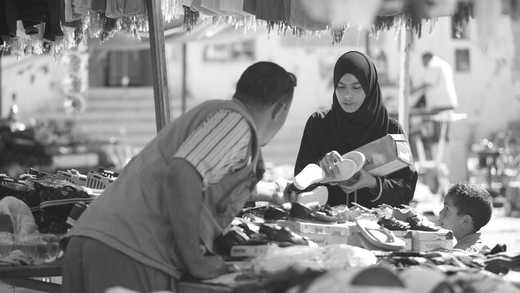
In Arabic, not only can you ask, “How are you?” in various ways, but each dialect has its own variations.
Before we learn how to say, “How are you?” in Arabic, let’s start by laying down a few basic facts:
1. “Arabic” is an umbrella term for Classical Arabic, Modern Standard Arabic, and Arabic dialects.
Classical Arabic is the variety that’s used in highly religious texts as well as modern and ancient literature, which is not the purpose of this guide (it’d be like asking someone “How dost thou?” in Shakespearean English).
We’re keeping it modern and simple!
2. Modern Standard Arabic (MSA), or Fus’ha, is the lingua franca that’s used across all Arab countries.
However, it’s the native language of nobody!
Fus’ha is used in formal documents, the news, weather podcasts, official media, and literature. What Arabs really speak on a daily basis depends on their country of origin and its historical, religious, colonial, and cultural heritage.
3. In this guide, I’ll show you the different ways of asking “how are you?” first in Modern Standard Arabic, which would be our baseline, and then in the most popular dialects, mainly: Egyptian Arabic, Lebanese Arabic, Iraqi, Saudi, Tunisian, Algerian, and Moroccan.
I also recommend checking out our guide on ‘hello’ in Arabic to learn some essential greetings.
Table of Contents:
The reason I’m expanding to the dialects is purely practical: to give you the choice of either remaining neutral by speaking MSA, or being more connected to the specific country and culture.
Modern Standard Arabic
You’re sitting at a coffee shop and your friend has finally arrived. You greet him, and then ask:

Technically, there is only one proper way to ask “how are you?” in Modern Standard Arabic. Easy, right? It makes learning simple.
The reason being is that, in theory, Fus’ha is meant to be formal.
Now, how would you reply to “how are you?” in Modern Standard Arabic?
It’s now when human nature comes to play! We rarely ever focus on the question itself because everyone asks it, but we surely expect a personalized answer.
We can’t be “fine” all the time, can we?
Let’s take a look at the following table and see some sample responses in Fus’ha to ‘how are you?’:
| English | Arabic | Transliteration |
|---|---|---|
| I am fine. Thank you! | . | ana be-KHAYR. SHOK-ran LAK. |
| I feel a little sick | ana ma-REEDH | |
| I am happy today and I have good news | ana Sa-EED-on al YAW-m, wa la-DAYY-a akh-BAA-ron SAA-rrah | |
| I have been a little anxious today, and I have some bad news. | ana mota-WAT-teron qa-LEE-lan, wa la-DAYY-a akh-BAA-ron SAYY-e’a. | |
| Why are you asking me? I don’t even know you! | le-MAA-dha tas-‘A-lonee? ana LAA aa-RE-foka AS-lan! | |
I’ll just say I’m fine. I don’t want to bore you with my negativity. | . . | sa a-QOO-lo FA-qat AN-nanee be-KHAYR. laa o-REE-do an oz-EE-jaka be maw-JAA-tee al sal-BEE-ya. |
| I’m hungry! Let’s eat. | . | ana JAA-‘ea. fal NA’-kol. |
| I’m mad! You won’t believe this. | . | ana GHAA-dheb. LAN to-SAD-deqa HAA-dha! |
| I’m speechless! | ana AA-jez an al ka-LAAM! | |
| I’m excited! | ana mota-SHAW-weq! |
These replies can apply to both formal and informal contexts, so, just make sure to keep it concise with strangers, and elaborate with close friends!
That said, there is no formal or informal way to ask “how are you?” in Fus’ha, nor is there a formal or informal way to answer the question. In most cases, Fus’ha can be used in informal contexts, but it still doesn’t lose the initial level of formality it’s meant to convey.
Now, with that set aside, let’s move to the part where nuances of formality and informality really show: dialects!
“How are you?” In Egyptian Arabic

Egyptian Arabic is by far the most popular and easy-to-understand dialect.
The Egyptian dialect has managed to dominate the media for long decades, and familiarized itself through classical music, movies, theater, and TV shows.
Arabic dialects can be highly unintelligible, but Egyptian Arabic is your second Joker card in case Fus’ha fails you for any reason.
You’re walking through an Egyptian local market in Alexandria, and you’re noticing how cheerful and connected people are. As you stand by a vegetable shop, the salesman asks you with a smile: “Hello, Ezzayek ya madame?” or ”Ezzayak ya fandem?” and hands you one of his apples.
Does he know you? Probably not, but you’re lucky enough to be among a people that strongly values warm verbal etiquette!
Salesman: ezaayak ya fandem?
You: kollo tamaam. shokran.
“Ezzayak?” is the most common Egyptian way of asking “how are you?” It can be used both in formal and informal contexts. You can use it in the marketplace, in the office, at the doctor’s, at school, and so forth.

However, it doesn’t stop there!
Unlike Fus’ha, the Egyptian dialect pays a lot of attention to etiquette and relevance. It can be either highly informal and friendly, or highly formal and polite. The following is a sample of the most common ways to ask how someone is in Egyptian Arabic:
| English | Arabic | Transliteration |
|---|---|---|
| How are you? | ez-ZAY-yak? | |
| How are things going? | ez-ZAY el ah-WAAL? | |
| How’s your health? | ez-ZAY el SEH-ha? | |
| All good? | b-KHEE-r? | |
| How are things going? | AA-mel EEH? | |
| What’s your news? | akh-BAA-rak EEH? | |
| What’s the news? | EEH el akh-BAAR? |
When you’re asked “how are you?”, you may just want to cut it short and say something like “kollo tamaam. shokran.”
But are you really “tamaam?”.
I invite you to have a look at the following table. You’ll find some common sample responses to “how are you?” in Egyptian Arabic:
| English | Arabic | Transliteration |
|---|---|---|
| I’m fine. Thank you. | . | ku-WAY-yess. Al HAM-du lel-LAAH. |
| All good. | kolloo ta-MAAM. | |
| Nothing new. | laa ga-DEED. | |
| I’m hungry. | ana ga-AAN. | |
| I’m sad. | ana zaa-LAAN. | |
| I’m excited. | ana met-SHAW-we’ |
The Egyptian dialect is very versatile, and is also deeply expressive.
You can always switch to Fus’ha when needed, or ask the listener about the correct way of saying a certain expression in Egyptian Arabic.
“How are you?” In Lebanese Arabic
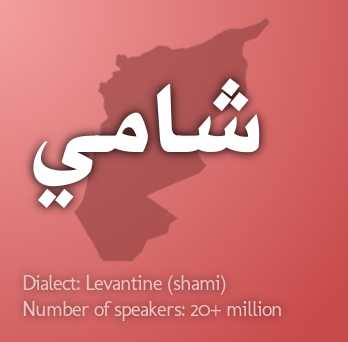
If refinement could speak, then Lebanese would be its language! It’s a dialect so fine that it epitomizes attractiveness and gentility. The Lebanese dialect is a Levantine variety that’s known especially for the long /e/ sound that marks the majority of the words.
In most Lebanese areas, you’d be able to communicate in Fus’ha, Lebanese, English, or French.
The Lebanese dialect is also infused with some Armenian, Greek, and Kurdish, and some areas speak more of these varieties than others, so, make sure to do some research depending on where you’re heading. For the most part, you’d be fine with English or French, but learning a few basic expressions in Lebanese would certainly strengthen your bond with the country and its people.
Now, let’s imagine this: you wake up one morning and you feel deeply tired, confused, or irritated. Here’s a life tip to help you overcome those negative feelings: listen to Feiruz as you’re getting ready.
She will ask you: “keefak enta? Malla enta.”

Do you remember the last time I saw you that year
Do you remember then the last word you said
And I didn’t see you after
And now I see you
Keefak enta? Malla enta.
If Feiruz herself sang an entire song about the expression “how are you?” then imagine how you could do the same with other similarly meaningful expressions!
Take a look at the following table, and learn how to say “how are you?” in this romantic Arabic dialect:
| English | Arabic | Transliteration |
|---|---|---|
| How are you? | keefak? | |
| Good? | tamaam? | |
| Is everything going well? | mashi el HAAL? | |
| All good? | KEL-lo mneeh? |
Feiruz’s lover doesn’t get the chance to reply to “keefak?” in the song, but you certainly can!
Here are some of the useful responses:
| English | Arabic | Transliteration |
|---|---|---|
| I’m good. | mneeh | |
| I’m great. | tamaam | |
| I’m not well. | mesh mneeh | |
| I’m just okay. | MAA-she el haal. |
If you ever forget how to say “how are you?” in Lebanese Arabic, play Feiruz!
“How are you?” In Saudi Arabic

Saudi Arabia is the origin of Islam, and, with the world’s largest sand desert, it’s only logical that the nation’s cultural history is rooted in authenticity, chivalry, hospitality, and generosity.
Since Islam and the Qur’an originated in Saudi Arabia, the country’s dialect remains heavily attached to Modern Standard Arabic.
This means that most of the Saudi lexicon is derived from Fus’ha, while also staying in touch with the phonological variations proper to the tribes of the country.
Let’s imagine that you’re visiting Saudi Arabia for Umrah, or for the Jockey Club, or to see a friend. The rule of thumb is as follows: you can safely use “kayfa halok?” in Saudi Arabia.

However, a more personal way of saying “how are you?” in Saudi Arabic is:” Shakhbarak?”
Or one of the following alternatives:
| English | Arabic | Transliteration |
|---|---|---|
| How are you? | sh-LOO-nak? | |
| keef el HAAL? | ||
| How is your health? | o-LOO-mak? | |
| All good? | Taye-BEEN? | |
| Any news? | Shakh-BAA-rak? | |
| I hope you’re doing great | nshallah b-KHEER |
Are you “b-kheer?”.
You may be, but you’re actually truly upset because the man sitting right in front of you is covering the horse race. You didn’t get to see your favorite horse break the records, and the man wouldn’t budge! Then, when you got home, your friend asked you “shloonak?”, and you answered bitterly “el hamdu lellah aala kol haal”.
Or one of the following alternatives if you were in a happier situation:
| English | Arabic | Transliteration |
|---|---|---|
| I am fine, thank God. | al HAM-du lellah | |
| I am good. | Tayye-BEEN | |
| Things are going well. | wallah MA-she al HAAL | |
| I’m just fine, but Al Hamdulellah. | al HAM-du lellah aal KOL haal |
And that’s how to be affectionate in Saudi Arabic!
“How are you?” In Iraqi
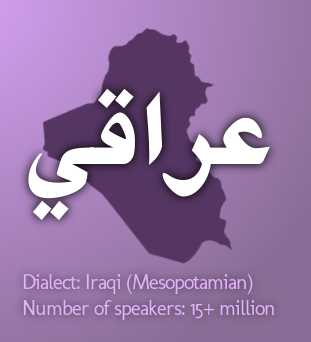
The Iraqi dialect is highly influenced by Persian, Turkish, Aramaic, and Kurdish. Modern Standard Arabic has also its own place in the dialect, but it’s not predominant.
That said, it’s important to take into consideration the phonological heritage in which Iraqi is deeply rooted.
Let’s imagine this scenario: you’re in Baghdad and you’re very hungry. You’ve just had brunch but you’re definitely not here for brunch only. You enter a popular restaurant called “Allah Bkheer”, and ask:”
Shloonak?”

You: Al salamu alaikom.
Waiter: Wa aalaikom salam, ya akhi. Shloonak?
“Shloonak” is the most common “how are you?” expression in Iraq (literally means “what’s your color?”). However, a people as hospitable and warm as the Iraqi people wouldn’t be satisfied with only one way of expressing care and attention.
Let’s take a look at the following table, and enjoy the phonological variation Iraqi dialect offers to you:
| English | Arabic | Transliteration |
|---|---|---|
| How are you? | shloonak? | |
| How have you been lately? | shakh-BAA-rak? | |
| How do you feel? | o-MOO-rak? | |
| How are you? (Aramaic) | sahko Mako? | |
| Are you OK? | enta ZEEN? |
You’re likely to just respond to the waiter with “zeen, el hamdellah”.
In other cases, you would certainly be much more elaborate about how you really feel, and might respond as follows:
| English | Arabic | Transliteration |
|---|---|---|
| I am fine. | b-KHEER | |
| I am OK. | ani zein | |
| I am not OK. | ani mo zein. | |
| Things are going well. | MA-shya al o-MOOR | |
| Fine | MAA-shee | |
| I’m fine, thank God. | al hamdu lellah |
Iraqi Arabic is definitely one of a kind. It’s rooted in ancient languages, and learning new Iraqi words every day is always a discovery!
North African Arabic dialects
North African countries are historically and linguistically connected to the West as much as they are to the Middle East.
The reason why we categorize the Arab world as “Middle Eastern” and “North African” is because North African dialects are deeply affected by European languages as well as tribal and aboriginal cultures. The most popular North African dialects (Tunisian, Algerian, and Moroccan) could sound somewhat alike, but they are, in many different ways, radically different.
Tunisia, Algeria, and Morocco share four basic linguistic aspects:
1. Influence of Modern Standard Arabic: Interestingly, the further you move from the Middle East, the less influence Fus’ha has on the nation’s dialect. That said, it’s safe to mention that Moroccan Arabic sounds the most “Moroccan” and the least “Arab”.
2. Influence of Berber languages: Berber languages are the most prominent in Moroccan and Algerian dialects, and less so in Tunisian.
3. Francophone heritage: North African countries have been subjected to long periods of Roman, Spanish, and especially French colonization. You will notice how Europeanized the North African dialects are compared to their Middle Eastern counterparts. On a more positive note, you’ll probably establish a spontaneous connection with these dialects given how familiar they might sound to you.
4. Code switching and code mixing: North Africans tend to either use more than one language in the same utterance (a sociolinguistic phenomenon known as “code mixing”) or switch between languages across utterances (also known as “code switching”). If you happen to engage in similar situations and think that the speaker’s code switching or code mixing is making communication difficult to maintain, don’t be shy to ask them to stick to one linguistic variety.
“How are you?” in Tunisian Arabic
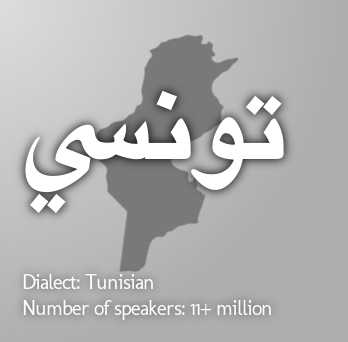
If you’ve been to Tunisia before, then you could relate to the following: you probably managed to understand a word or two from a couple enjoying coffee by the Avenue.
However, you felt that your general knowledge was being tested: one time, you hear a French word, another time, it’s Spanish, or Italian, or Turkish, or Latin, or Berber, or Modern Standard Arabic, or all of the above, or none of the above!
Don’t worry! It’s true that the Tunisian dialect is versatile, but expressing care and politeness is as straightforward as it can get.
Let’s imagine the following scenario: You’re taking a walk at the main Avenue, and you decide to enter the bookstore that’s right beside the Church. As you browse through the books, you decide to ask the young bookkeeper if any of Edgar Allan Poe’s short stories was available.
The bookkeeper says “Hi. Shnahwalek? Ca va?“, and you answer “ca va, thank you.” Or “Labess, thanks.” Or “ca va bien, merci!” or “El Hamdu lellah. Yaayshek.”
*Bookkeeper: Hello, ca va?*
*You: El Hamdou lellah, thanks.*
Bookkeeper: Would you like me to help you find something?
You: I wonder if I could find any of Edgar Allan Poe’s work here.
Bookkeeper: Yes. We carry most of his literature. I’ll show you.
Then, the owner of the bookstore walks in, and greets everyone the same way: “Hello, Labess?”

It doesn’t really matter if you’re asking “how are you” to a bookkeeper, or to a professor, or a lawyer, or a President, or a child, or a man, or a woman. All individuals are greeted the same way, but, what really defines the level of formality is either the speech tone or the response.
Let’s take a look at the most common ways of asking “how are you?” in Tunisian Arabic:
| English | Arabic | Transliteration |
|---|---|---|
| How are you? | shnah-WAA-lek? | |
| How (where) are you? | WEE-nek? | |
| Are you good? | la-BESS? | |
| All good? (French) | saa VAH? | |
| All good? (informal) | MREE-guel? | |
| How are you doing? | she-AA-mel? |
Now, it can’t be “labess” all the time!
In fact, we’re more likely to be a little anxious about our car engine, or worried about our parents’ health, or angry at the friend who wouldn’t pay us back for fixing his laptop, or excited to announce a friend’s pregnancy, or hesitant about Edgar Allan Poe’s collection!
When asked about how you feel in Tunisian Arabic, you may refer to the following table for general or contextualized answers:
| English | Arabic | Transliteration |
|---|---|---|
| I am great. Thank you. | . | AA-mel SET-ta w SET-teen keef. Y-AAY-shek |
| I am fine. | LA-bess. | |
| I am just fine. | HAK-keeka. | |
| I am sick. | mreedh | |
| I am uncomfortable. | ma-NEESH mer-TAAH. | |
| I am actually hungry. | wallahee jee-AA-n el HAQ | |
| I won’t talk to you. | ma nah-KEESH maak | |
| Sorry, what did you say? | Sa-MAH-nee. Sh-QOLT? |
You’ll be safe to use these responses in most human interactions.
However, we recommend using the listener’s language. For example, if you’re asked “ca va?“, try to reply with “ca va, merci!”. Likewise, if you’re asked:“labess?” try to reply with “labess, yaayshek” or “hamdoulah, yaayshek.“.
This is not really a spoken or established social rule by any means, but it’s a way of staying on the same page with the listener.
In case you can’t speak the language in which “how are you?” is being asked, you can reply in a different language or variety as a way of informing the listener of your linguistic preference.
“How are you?” in Algerian Arabic

The Algerian dialect is one of a kind. It incorporates Berber, French, Ottoman Turkish, Spanish, and Modern Standard Arabic, and fuses them into one smooth linguistic variety.
It relies heavily and exceptionally, together with Moroccan Arabic, on tone and phonology. If you have met Algerians before, then you know for a fact that their tones are so expressive that you could be coming from Planet Mars and still understand that they are asking a question or making a request.
Tell me, have you read The Stranger by Albert Camus? If not, then you should!
Or even better, read Repudiation by Rachid Boudjedra. Both of these novels offer a respectable insight into the diversity and versatility of the Algerian dialect.
But let’s talk about the basics for now!

If you want to say “how are you?” in Algerian Arabic, use one or more of the following options:
| English | Arabic | Transliteration |
|---|---|---|
| How are you? | WESH rak? | |
| Are you ok? | labass? | |
| All good? (French) | saa VAH? | |
| Any news? | kayen SHE jdeed? | |
| I hope you’re doing fine | b-KHEER nshallah |
And you can respond to those questions with these samples:
| English | Arabic | Transliteration |
|---|---|---|
| I’m fine. Thank you. | labass. Saha. | |
| I’m fine. Thank God. | ana labass. El hamdu lellah. | |
| Things are going well with me. | MA-she el haal. |
As you can see, Algerian is concise and straightforward, but those are only the basic expressions that you would need for casual day-to-day communication. If you want to learn more about Algeria, read the book suggestions above or see TalkInArabic.com.
“How are you?” in Moroccan Arabic
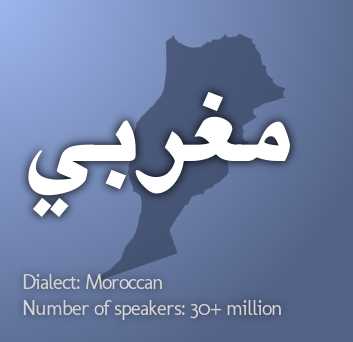
Moroccan Arabic could be placed the furthest from Modern Standard Arabic in terms of linguistic and phonological influence because it remains heavily influenced by Berber and French.
Just like Algerian Arabic, the Moroccan dialect blends in a heavy portion of Tamazight along with Arabic, French, and Spanish.
The major difference between Moroccan Arabic and Algerian Arabic is that Algerian Arabic is more French-oriented given the nation’s long history with French colonization, which lasted over a century. As for Moroccan Arabic, it remains rather close to Spanish due to geographical proximity and other political and historical considerations.
Let’s picture this: You bought this beautiful Moroccan Kaftan on sale a few days ago, but it fits a bit too loose. So, instead of heading to the fancy tailor in your city, you decide to resort to your local Moroccan tailor: Madame Naziha, the fierce, expressive, and talented tailor who has the power to turn your shabby Kaftan into a one-of-a-kind high-end piece.
You knock her door and she meets you with half a smile. You ask her: koulchi bikhir?

*You: Koulchi bkhir?*
*Naziha: Labass. Hamdullah.*
Greeting expressions in Moroccan Arabic are relatively easier to classify in terms of formality. Let’s look at the following examples:
| English | Arabic | Transliteration |
|---|---|---|
| How are you? | labass? | |
| Is everything ok? | KOL-shee b-KHEER? | |
| Any news? | kayen she j-DEED? | |
| How are things going? | ke GHA-dya el o-MOOR? | |
| How are you feeling? | ke DA-yer? | |
| What’s up? (informal) | faynak? | |
| What have you been up to? (informal) | feen SHAD-dah? |
You might really be “labass”, but, in reality, the spicy Tajine that you had earlier is upsetting your stomach. The taxi driver was narrating his father’s adventures in Spain, and you got carried away with the story and forgot to ask him to drop you at Naziha’s place. Naziha is looking upset, and you fear upsetting her even more with your detailed requirements regarding the Kaftan, so you decide to postpone the rendezvous.
Here are the most common Moroccan responses to the question “how are you?“:
| English | Arabic | Transliteration |
|---|---|---|
| I’m fine | labass | |
| So far, so good! | el hamdu lellah hadd el SAA-aa. | |
| Everything is fine. | KOL-shee labass. | |
| Everything is OK. | KOL-shee ala KHEER. | |
| I’m good. (French) | saa VAH?. | |
| I’m fine, thank God. | mez-YAAN. Al hamdu lellah. | |
| I’m good. | mesal-KEEN. | |
| We’re just hanging on for now. | ahna gha-DYEEN had al SAA-aa. |
You have an entire catalog of the Moroccan ways to ask “how are you?” to a loved one or to an acquaintance, so make sure to ask your Moroccan friends “labass?” when you see them, and they’ll be more than happy to teach you more about their dialect!
So that’s how you say ‘How are you?’ in Arabic
There you have it.
The best resource for learning all these variations and many more is TalkInArabic.com (which covers Egyptian, Levantine, Iraqi, Saudi, Tunisian, Algerian, Moroccan and even Sudanese).
Use code MEZZOGUILD for 20% off any subscription option.
Did I miss anything?
Comment below!
 Grab the link to this article
Grab the link to this article